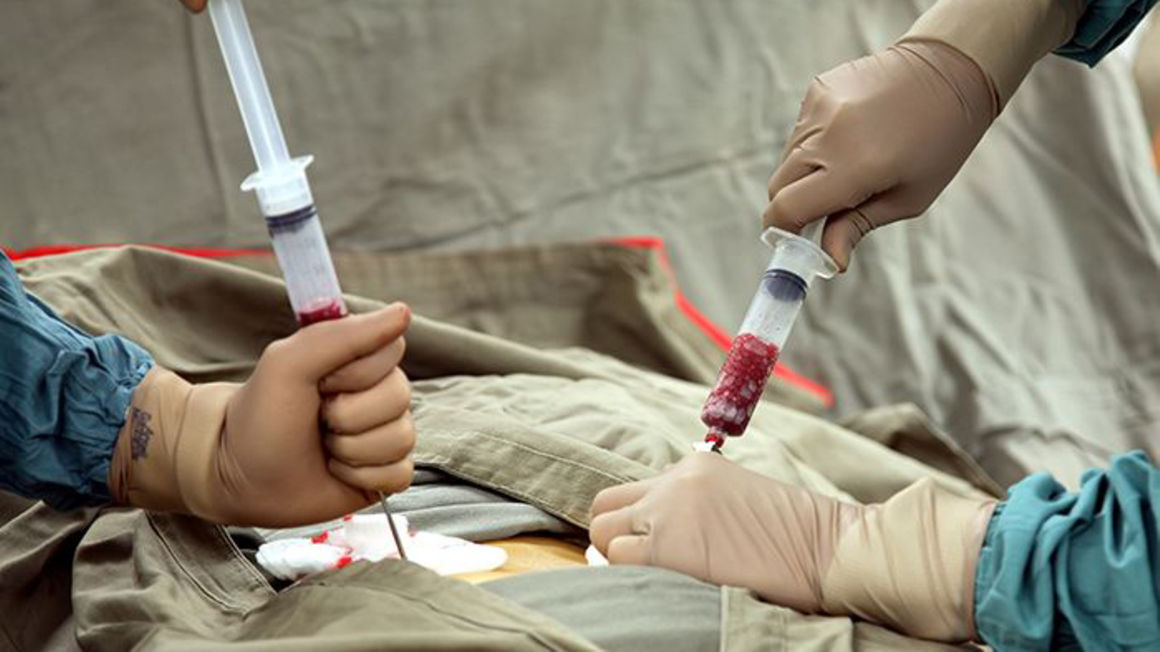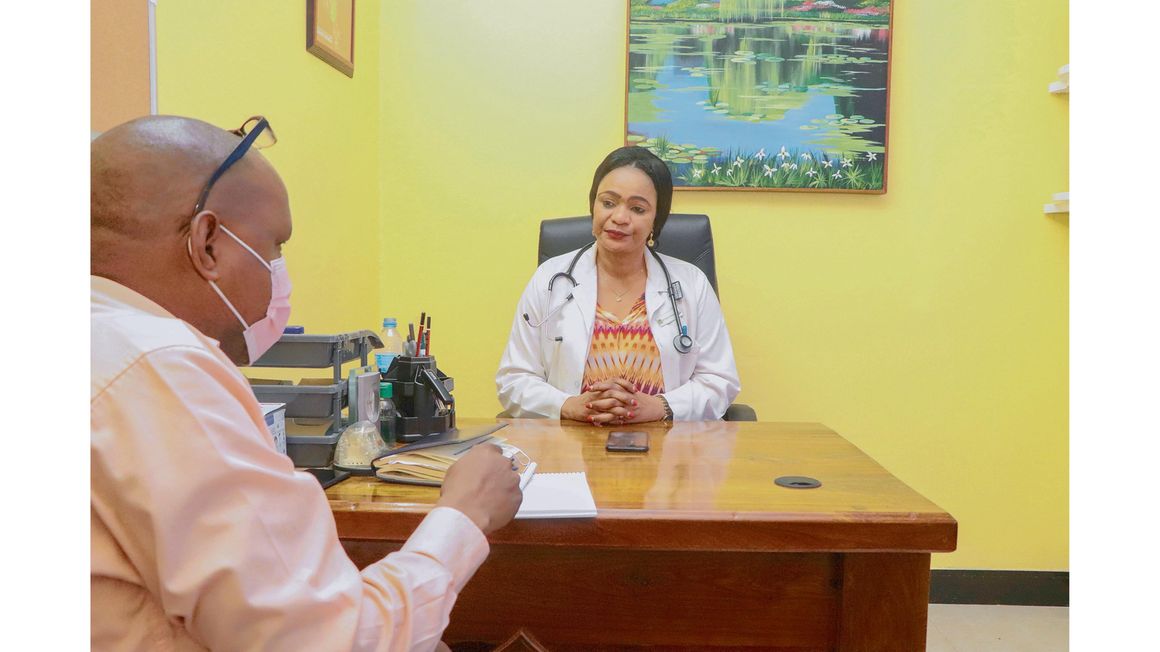
Success Autologous stem cell transplant--for treatment of a form of blood cancer--involves use of the harvests from the patient himself. Courtesy of Shutterstock
Dar es Salaam. On November 26 to 28, 2021, the Muhimbili National Hospital (MNH) successfully performed autologous stem cell transplant to five patients with multiple myeloma.
It was the first transplant in the country’s history as well as the East and Central Africa.
Tanzania becomes the sixth African country to acquire the capability after South Africa, Egypt, Morocco, Nigeria and Tunisia.
The transplant was jointly performed by experts from Tanzania and foreign counterparts especially from Apollo Hospital of India under the supervision of Dr Stella Rwezaula also heading the MNH haemophilia department.
In a recent interview with The Citizen, Dr Rwezaula gives insights of the treatment that brings a new hope to patients and citizens of Tanzania and neighbouring countries.
That is because the breakthrough significantly reduces financial burden faced by patients who previously had to find the treatment abroad, she noted.
She reveals that patients had to pay between Sh200 million and Sh300 million for the same treatment in India, noting that they had to dig deeper in the European and the US hospitals.
But, the stem cells transplant service at MNH will cost Sh70 million, with Dr Rwezaula saying this could decrease to insured patients.
She says health services such as admission at the Intensive Care Unit (ICU), rigorous body checks and procurement of some medicines like antibiotics are covered by patients’ insurance.
However, she says expensive medicines such as bones stimulants and special kits for stem cells collections during harvest process are not covered by insurance.
“One stem cells kit is sold at between Sh300,000 and Sh500,000. Yet, it an equipment that is disposed immediately after use. Therefore, citizens should get used to healthcare cost sharing for service sustainability,” she says.
Types of stem cells transplant
Dr Rwezaula says that autologous stem cell transplant involves use of the harvests from the patient himself.
But, allogeneic stem cell transplant uses stem cell from a donor or a person sharing similar genetic composition with the patient.
“Allogeneic stem cell transplant is done to patients with Acute Myeloid Leukaemia (AML) and Acute Lymphocytic Leukaemia (ALL). Others are patients with sickle cell diseases, aplastic anaemia and thalassemia,” says Dr Rwezaula.
Stem cells harvests
Dr Rwezaula says autologous stem cells transplant involves harvesting stem cells from the patient.
It is done after one has been provided by medicines for stimulating manufacturing of stem cells and respectively pushing them into the blood system.
“Harvests involve taking the patient to the computerized apheresis machine. Blood from the patient gets into the machine where it is centrifuged for collection of stem cells while the rest part of the blood returns to the patient’s body,” she says.
She says harvested stem cells are collected in special bags like those used for collection and storage of donated blood.
The collection is then stored in a refrigerator at below six degrees centigrade where it can be stored for up to 72 hours.
In case the storage had to exceed 72 hours, the stem cells must first be treated. Dr Rwezaula says transplant is done in the same way patients are put on blood transfusion.
Preparation for transplantation
The expert says patients are counselled and must give a video recorded consent to accept treatment advantages and disadvantage.
“The patient is also examined to determine presence of other conditions like HIV, kidney, TB etc. Once such diseases and others like blood pressure are identified they will only be qualified after the same have been controlled,” she says.
Transplant advantage, disadvantage
She says a patient subjected to autologous stem cell transplant can take six to ten years without resumption of the disease as compared to those undergoing chemotherapy that could resume between five and 12 months of the treatment.
“The main disadvantage of the treatment is the five and ten percent possibility of the patient’s death. Also, they may suffer thinned hair, nails self-removal, possible wounds in the mouth and the entire digestive system, etc,” she says.
Stem cells transplant
It is performed 24 hours after the patient has been provided high dose cancer medicine to kill cells that couldn’t be reached by earlier treatments.
The patient would then need to wait for two to three weeks for stem cells germination and starting manufacturing new cells.
“Since application of large cancer doses kills cells in the patient’s body, the patient’s body immunity would become zero at this stage, therefore becoming susceptible to disease infections,” she says.
According to her, the patient is required to be taken to a distinctive Intensive Care Unit (ICU) whose walls can prevent possible infections. In the ICU, the patient uses filtered air, treated water and sterilized food and that healthcare workers should sterilise, change clothes, wear face masks, gloves, shoes and cover their heads to prevent infections.
“Lacking body immunity, producing no blood cells or platelets patients will rely on donations throughout the first two to three weeks until when stem cells have germinated and start producing blood cells,” she says.
Dr Stella Rwezaula speaks to The Citizen reporter Louis Kolumbia at her office at the Muhimbili National Hospital in Dar es Salaam recently. Dr Rwezaula heads the haemophilia department at the health facility. PHOTO | SUNDAY GEORGE
Dr Rwezaula says efficient manufacture of blood cells could lead to discharge of a patient, noting that they will however continue taking drugs for the first 100 day to prevent any possible infections.
Vaccination
She says a patient who has undergone autologous stem cell transplant requires fresh vaccinations in order to strengthen their body immunity after distractions from the large dose of cancer.
“Vaccines provided at childhood for diseases like TB, measles, tetanus etc will be provided a fresh. However, patients subjected to allogeneic stem cells transplant end up at adopting donor’s blood group instead of the usual,” she says.
Difficult moment
Recalling the five transplanted patients, Dr Rwezaula says experts passed through difficult moments in the two to three weeks of close monitoring of patients at the ICU.
The five had to be provided with close monitoring from specialized doctors and a nurses, forcing the medics to spend almost 24 hours at MNH.
“Patients’ condition could change just in 30 minutes. Therefore as a team leader, I had to be there almost all the time and take short breaks after three to four days,” she says.
Sh6 billion investment
Dr Rwezaula commended the government for providing Sh6 billion part of which was used for rehabilitating the ICUs.
According to her, part of the money was used to procure two apheresis machines at Sh250 million. She says currently, six patients could be treated at a go per month making it 72 annually.
“Plans are underway to build a larger facility at the MNH-Mloganzila that will accommodate a large number of patients to meet the country’s demand,” she says.
Expert trainings
Dr Rwezaula says specialists and experts in various departments routinely receive training in India, noting that even the country’s settings constituted improved replications of those in Apollo Hospitals.
Managing multitasking
Despite leading the successful team, Dr Rwezaula heads the Haemophilia Comprehensive Clinic at the MNH, President of the Tanzania Haemophilia Association, former treasurer of the Medical Women Association of Tanzania (Mewata), a wife and a mother.
“Like how President Samia Suluhu Hassan manages multitasks, women are blessed with management of multiple tasks,” she says.
Who is Dr Rwezaula?
Dr Rwezaula was born in 1971 in Muleba District, Kagera Region. She is a masters’ degree holder in haematology and a PhD candidate.
She is married and is a mother of four who was inspired into the carrier by her mother Euginia Rwezaura who was a nurse.
Her father, Mr Samson Rwezaura was an agricultural officer. She loves music, choir, travelling, networking, reading and cooking whenever there is time for her private life.





No comments :
Post a Comment